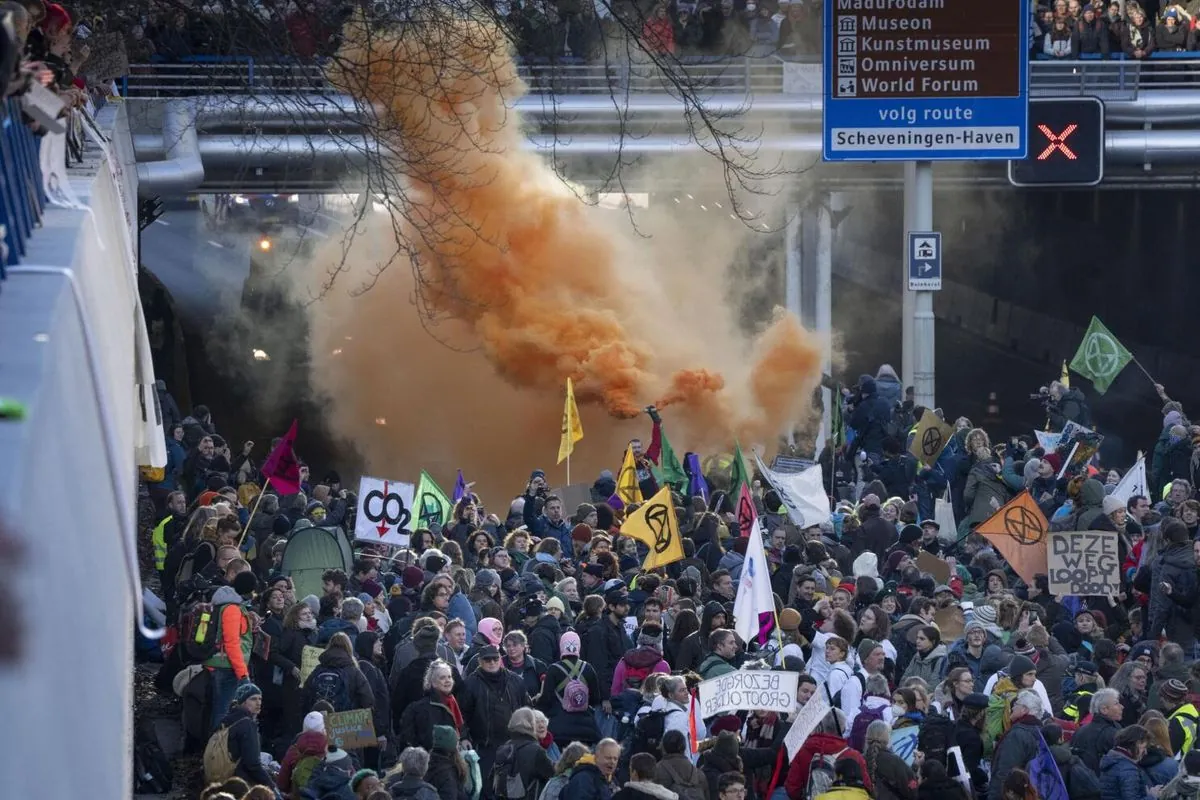Climate Activists Block Dutch Highway in Fossil Fuel Subsidy Protest
Hundreds of climate activists blocked a major highway in The Hague, protesting against fossil fuel subsidies. The demonstration, part of ongoing Extinction Rebellion actions, coincided with a police strike, complicating authorities' response.

On September 16, 2023, approximately 500 climate activists staged a significant protest in The Hague, Netherlands, blocking a major highway leading to the city center. This demonstration, organized by Extinction Rebellion, aimed to draw attention to government subsidies for fossil fuels and demand their removal.
The protest occurred during a police strike, resulting in minimal law enforcement presence. Activists marched onto the A12 highway, carrying banners with slogans such as "Action Now" and "Stop Fossil Subsidies." Some protesters brought camping equipment, indicating their intention to remain overnight.

The Netherlands, despite its reputation for environmental consciousness, faces significant challenges in its transition to sustainable energy. As one of the world's largest natural gas producers, the country has set ambitious goals to reduce greenhouse gas emissions by 49% by 2030 compared to 1990 levels. However, a 2022 government report revealed that industrial companies receive over €39 billion in fossil fuel subsidies annually, primarily through tax breaks.
Extinction Rebellion has been conducting similar protests at this location for the past year, vowing to continue until the subsidies are eliminated. The group's persistence reflects the Netherlands' long history of environmental activism and green politics.
"Blocking the highway is forbidden and protesters should move to a large field nearby."
The protest highlights the complex challenges facing the Netherlands in its fight against climate change. With about 20% of the country below sea level, the Dutch are particularly vulnerable to rising sea levels. This vulnerability has spurred significant investments in flood control systems and renewable energy, including large offshore wind farms.
As the protest unfolded, the city's response was limited due to the ongoing police strike, scheduled to end at 5 p.m. local time. This situation created uncertainty about the duration of the highway blockade.
The demonstration underscores the tension between the Netherlands' climate ambitions and its economic reliance on fossil fuels. While the country aims to phase out natural gas for residential heating by 2050 and close all coal-fired power plants by 2030, the substantial subsidies to fossil fuel industries remain a point of contention for environmental activists.
As Dutch scientists continue to lead in climate change research, the country faces the challenge of balancing its role as a major agricultural exporter and home to Europe's largest port in Rotterdam with its commitments to reduce carbon emissions. The implementation of a carbon tax on industry and the extensive network of bike paths demonstrate the nation's efforts to transition to a more sustainable future.
This protest serves as a reminder of the ongoing global struggle to address climate change and the critical role of public activism in shaping environmental policies.


































